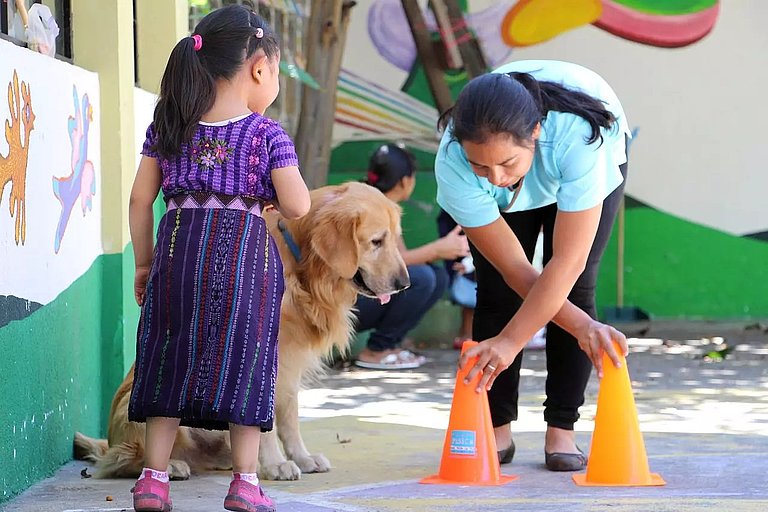According to Bündnis Entwicklung Hilft's World Risk Report 2020, the inhabitants of Guatemala, El Salvador, Honduras and Nicaragua are at high risk of becoming victims of extreme natural disasters and weather events.
Although the effects of such catastrophes affect all segments of the population, it is people with disabilities who are most at risk and are disproportionately affected by disasters. In addition, there are few specialized institutions for people with disabilities in Central America.
This population group is generally in a situation of difficult social and community participation, with little visibility, and is not taken into account in the few state or municipal evacuation plans that exist.
PARTNER WORK

In a consortium project with Arbeiter-Samariter-Bund (ASB) and Christoffel-Blindenmission (CBM) we work with local NGOs in different Central American countries to build knowledge on disaster risk reduction, risk management, climate change, disability and inclusion.
ASB works in Nicaragua with the organization FECONORI; CBM coordinates work in Honduras with CUSO and PREPACE as well as in Guatemala with ASORO and AWO International, with CORDES in El Salvador and ACOPEDIS in Guatemala.
The project is based on the Sendai Framework for Disaster Risk Reduction 2015-2030, which was adopted at the Third UN World Conference on Disaster Risk Reduction.
AWARENESS-RAISING FOR EFFECTIVE ACTION

The main objective is to reduce disaster risk for people with disabilities in the region and at the same time raise awareness among the community and political authorities on the importance of inclusive rescue programs.
As one of the project's activities, awareness campaigns are carried out to place the issue of disaster risk management on the political agenda at local, regional and national levels. The institutions responsible for disaster management in the respective countries are strengthened and informed about the need to include people with disabilities at all levels.
At the same time, the five local partner organizations work intensively in selected communities with people with disabilities and their families, who are given workshops and training to develop a "Family Emergency Response Plan" and to mark evacuation routes in their homes, among other things.
At community and institutional level, the organizations set up an early warning system for the affected areas. This has a positive impact on the inclusion of people with disabilities, as the population is informed about their specific needs.
The organizations participating in this consortium project also work in networks with other NGOs in the areas of inclusion and disaster risk reduction and participate in meetings with governmental actors to improve risk response plans.
Projectinfo
| Project | Implementation of the Sendai Framework in Central America: promoting a multi-country approach to strengthen inclusion in disaster risk reduction at regional, national and local levels. |
|---|---|
| Place/Region | Guatemala, El Salvador, Honduras, Nicaragua |
| Partner | Consortium of AWO International, ASB and CBM with local partners ACOPEDIS (Guatemala) and CORDES (El Salvador). |
| Target group | People with disabilities and their families; government personnel and organizations responsible for disaster prevention; representatives of local communities and the population of the selected communities in four countries. |
| Activities |
|
| Duration | 2020-2024 |
| Budget | 2.000.000€ |
| Sponsor | BMZ, own contributions from ASB, AWO International and CBM |
